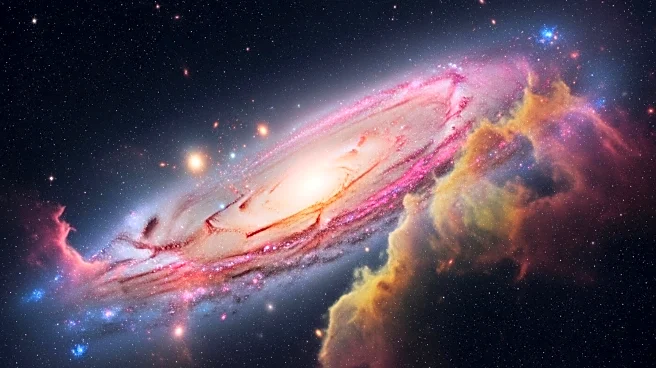What is the story about?
What's Happening?
Astronomers have introduced a new theory suggesting that the universe might possess a subtle rotation, potentially resolving the longstanding Hubble tension—a discrepancy between two methods of measuring the universe's expansion rate. This theory, proposed by astronomer István Szapudi and his team, suggests that the universe rotates slowly, akin to a giant spinning top. This rotation could reconcile conflicting measurements from distant supernovae and cosmic microwave background radiation, which have puzzled scientists for years. The theory maintains established physics without introducing exotic particles or dimensions, offering a simple yet profound adjustment to cosmological models.
Why It's Important?
The potential discovery of a cosmic rotation could significantly impact future cosmological research, necessitating a reevaluation of existing models and providing new insights into the universe's origins and fate. This theory could influence our understanding of cosmic phenomena, including the behavior of galaxies, stars, and dark matter. By resolving the Hubble tension, scientists might open new horizons in cosmology, enhancing our comprehension of the universe's dynamics without discarding existing observational data.
What's Next?
The next steps involve translating the theory into detailed simulations and identifying observational evidence. Scientists anticipate finding indicators of cosmic spin in cosmic microwave background patterns, galaxy distributions, and light trajectory distortions. This journey from theory to empirical validation could reshape our understanding of the cosmos, challenging long-held beliefs and inviting new perspectives.
Beyond the Headlines
The notion of a rotating universe invites questions about the initial conditions of the Big Bang and how such a spin could have been established. It raises the possibility that other cosmic phenomena might be influenced by this rotation, warranting further exploration. As researchers delve deeper into this hypothesis, they must consider its broader implications, potentially transforming our view of the universe.
















